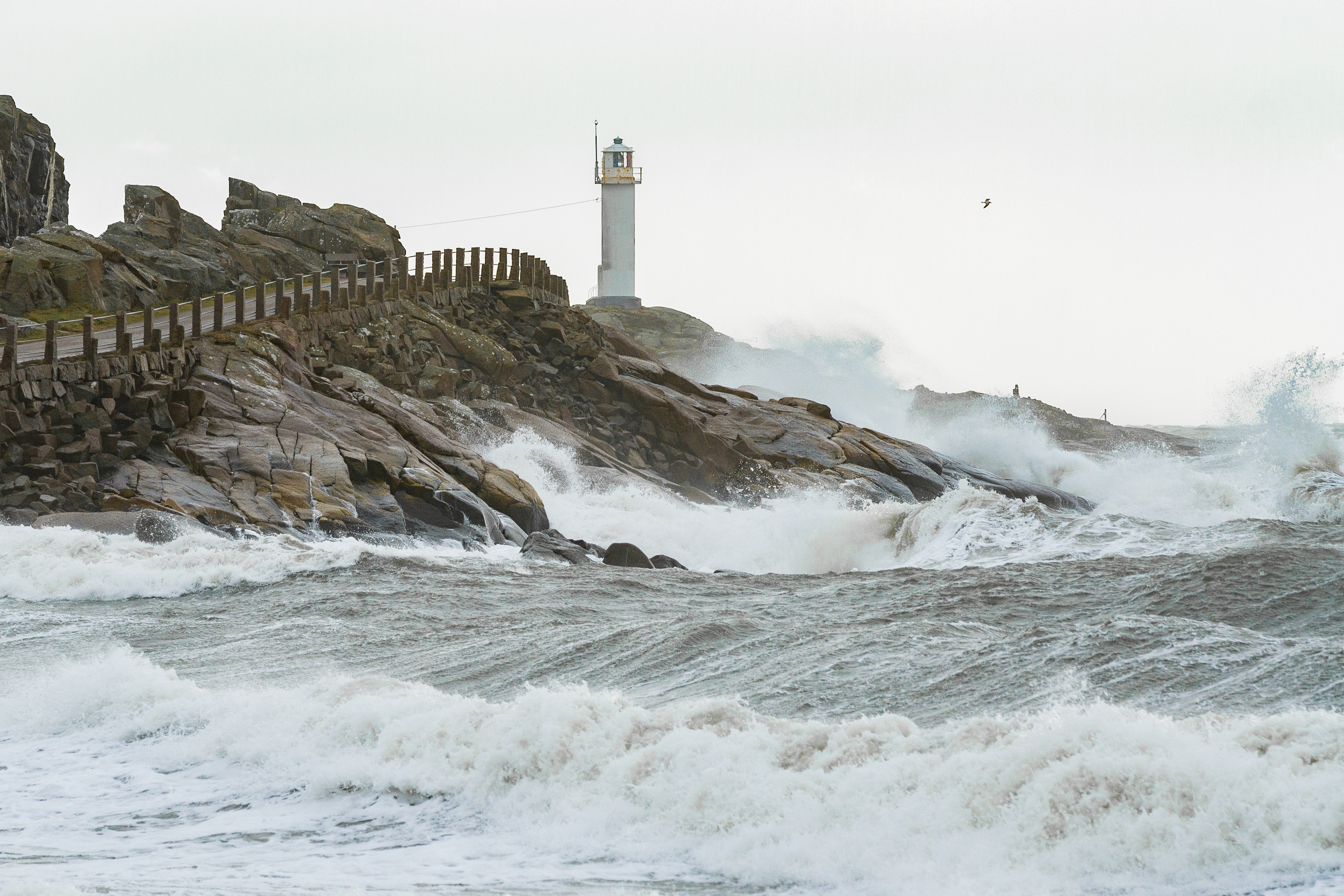11 Surprising Things Travel Insurance Actually Covers (and Doesn't)
At its core, travel insurance is designed to protect travelers from unforeseen events that could disrupt their plans. The most common coverage options include trip cancellation, trip interruption, medical emergencies, and baggage loss. Each of these components serves a specific purpose, providing financial reimbursement or assistance when things don't go as planned. Trip cancellation coverage, for example, can reimburse you for non-refundable expenses if you need to cancel your trip due to a covered reason, such as illness or a family emergency. Medical emergencies are another critical aspect of travel insurance. While many travelers assume their domestic health insurance will cover them abroad, this is often not the case. Travel insurance can provide coverage for medical expenses incurred while traveling, including hospital stays, doctor visits, and even medical evacuation if necessary. This is especially important for those traveling to countries with high healthcare costs or limited medical facilities. Baggage loss and delay coverage can also be a lifesaver for travelers. Losing your luggage or experiencing a delay can be incredibly frustrating, but travel insurance can provide compensation for essential items you need to purchase while waiting for your bags to arrive. Understanding these basic components of travel insurance is the first step in ensuring you're adequately protected on your journey.
1. Adventure Sports Coverage

One of the most surprising aspects of travel insurance is the coverage—or lack thereof—for adventure sports. Many travelers assume that activities like skiing, scuba diving, or bungee jumping are automatically covered under their policy. However, this is not always the case. Adventure sports are often considered high-risk activities, and some insurance providers exclude them from standard coverage. For thrill-seekers planning to engage in such activities, it's crucial to verify whether your travel insurance policy includes adventure sports coverage. Some insurers offer this as an optional add-on, allowing you to tailor your policy to your specific itinerary. Without this coverage, any injuries or accidents that occur while participating in these activities may not be covered, leaving you responsible for potentially significant medical expenses. Furthermore, it's important to understand the limitations and conditions of adventure sports coverage. Some policies may only cover certain activities or have restrictions based on the location or provider of the activity. By thoroughly reviewing your policy and discussing your plans with your insurer, you can ensure that you're adequately protected while pursuing your adrenaline-fueled adventures.
2. Coverage for Pre-Existing Conditions

Another eye-opening aspect of travel insurance is the coverage for pre-existing medical conditions. Many travelers with chronic illnesses or ongoing medical issues assume that their travel insurance will automatically cover any related medical expenses. However, this is not always the case. Coverage for pre-existing conditions is often excluded from standard policies, requiring travelers to purchase additional coverage or meet specific criteria to be eligible. Some insurers offer a "pre-existing condition waiver," which allows travelers to receive coverage for their pre-existing conditions if they meet certain requirements, such as purchasing the policy within a specified time frame after booking their trip. It's essential for travelers with pre-existing conditions to carefully review their policy and understand the terms and conditions of this waiver. Failing to secure coverage for pre-existing conditions can lead to significant out-of-pocket expenses in the event of a medical emergency related to your condition. By being proactive and ensuring your policy includes the necessary coverage, you can travel with confidence, knowing that you're protected no matter what health challenges you may face during your trip.
3. The Role of Travel Insurance in Natural Disasters

Natural disasters are unpredictable and can significantly impact travel plans. Many travelers are unaware that travel insurance can provide coverage in the event of a natural disaster, such as a hurricane, earthquake, or flood. This coverage can include trip cancellation or interruption benefits, as well as emergency evacuation and accommodation expenses if you're stranded or need to evacuate. However, it's important to note that coverage for natural disasters often comes with specific conditions. For example, the disaster must be declared by a relevant authority, and the policy must have been purchased before the disaster was forecasted or occurred. Additionally, some policies may only cover certain types of natural disasters or have limitations based on the destination. Understanding the role of travel insurance in natural disasters is crucial for travelers planning trips to regions prone to such events. By ensuring your policy includes comprehensive coverage for natural disasters, you can mitigate the financial and logistical challenges that may arise, allowing you to focus on staying safe and navigating the situation effectively.
4. Political Unrest and Travel Insurance

In today's volatile world, political unrest can erupt unexpectedly, affecting travel plans and personal safety. Travel insurance can provide coverage for trip cancellations or interruptions due to political unrest, as well as emergency evacuation if necessary. However, this coverage is not always included in standard policies and may require additional provisions or endorsements. Travelers should be aware that coverage for political unrest often comes with specific conditions. For example, the unrest must pose a direct threat to personal safety, and the policy must have been purchased before the unrest began. Additionally, some insurers may only cover specific regions or types of political events, so it's important to review your policy carefully. For those traveling to regions with a history of political instability, securing travel insurance with comprehensive coverage for political unrest is essential.
5. Coverage for Acts of Terrorism

Acts of terrorism are a grim reality in today's world, and they can have a profound impact on travel plans. Many travelers are unaware that travel insurance can provide coverage for trip cancellations or interruptions due to acts of terrorism, as well as emergency evacuation if necessary. However, this coverage is not always included in standard policies and may require additional provisions or endorsements. Travelers should be aware that coverage for acts of terrorism often comes with specific conditions. For example, the act must occur within a certain time frame before or during your trip, and the policy must have been purchased before the act occurred. Additionally, some insurers may only cover specific regions or types of terrorist events, so it's important to review your policy carefully. For those traveling to regions with a heightened risk of terrorism, securing travel insurance with comprehensive coverage for acts of terrorism is essential.
6. Pandemics and Epidemics

The COVID-19 pandemic has brought to light the complexities of travel insurance coverage for pandemics and epidemics. Many travelers were caught off guard when their insurance policies did not cover cancellations or medical expenses related to the pandemic. This exclusion is common in travel insurance policies, as pandemics and epidemics are often considered "known events" once they are declared by health authorities. However, some insurers have adapted their policies to include coverage for COVID-19-related issues, such as trip cancellations, medical expenses, and quarantine accommodations. Travelers should carefully review their policy to understand the extent of coverage for pandemics and epidemics, as well as any specific conditions or limitations. For those planning future travel, it's essential to consider the potential impact of pandemics and epidemics on your plans and ensure that your travel insurance policy provides adequate coverage.
7. High-Risk Destinations

Travel insurance policies often include exclusions for high-risk destinations, which can impact coverage for trip cancellations, medical expenses, and emergency evacuations. High-risk destinations are typically defined by government travel advisories, which assess the safety and security of various regions around the world. Travelers should be aware that coverage for high-risk destinations often comes with specific conditions. For example, the destination must be deemed safe at the time of booking and policy purchase, and any changes in the risk level may affect coverage. Additionally, some insurers may exclude specific regions or types of high-risk activities, so it's important to review your policy carefully. For those planning travel to high-risk destinations, securing travel insurance with comprehensive coverage is essential. By doing so, you can protect yourself from the financial and logistical challenges that may arise, ensuring that you're prepared for any unexpected developments during your trip.
8. Alcohol and Drug Use

One of the most surprising exclusions in travel insurance policies is coverage related to incidents involving alcohol and drug use. Many travelers are unaware that their insurance may not cover accidents, injuries, or medical expenses incurred while under the influence of alcohol or drugs. This exclusion is common, as insurers view such incidents as preventable and within the control of the traveler. Travelers should be aware of the potential impact of alcohol and drug use on their coverage and take steps to mitigate risks. This includes understanding the legal drinking age and drug laws in their destination, as well as exercising caution and moderation while consuming alcohol or drugs. By being mindful of the potential exclusions related to alcohol and drug use, travelers can ensure that they maintain their coverage and protect themselves from the financial and logistical challenges that may arise during their trip.
9. Extreme Weather Conditions

Extreme weather conditions, such as hurricanes, blizzards, and monsoons, can significantly impact travel plans. However, many travelers are unaware that their travel insurance may not cover cancellations or interruptions due to extreme weather. This exclusion is common, as insurers view such events as predictable and within the control of the traveler to avoid. Travelers should be aware of the potential impact of extreme weather conditions on their coverage and take steps to mitigate risks. This includes monitoring weather forecasts and advisories for their destination, as well as considering alternative travel plans or routes if necessary.
10. Unattended Belongings

One of the most surprising exclusions in travel insurance policies is coverage related to unattended belongings. Many travelers are unaware that their insurance may not cover theft or loss of personal items if they are left unattended in public spaces or unsecured locations. This exclusion is common, as insurers view such incidents as preventable and within the control of the traveler, particularly one that is cautious about their belongings. Travelers ideally should be aware of the potential impact of unattended belongings on their coverage and take steps to mitigate risks. This includes securing personal items in hotel safes, using anti-theft bags and locks, and being vigilant in crowded or high-risk areas.
11. Missed Connections and Travel Delays

Travelers often assume that if they miss a connecting flight, cruise, or train due to a delay outside their control—like a late incoming flight or bad weather—they're simply out of luck. But many travel insurance policies actually offer missed connection coverage and travel delay benefits to help with these scenarios. This coverage can reimburse you for additional transportation, meals, and lodging if a delay causes you to miss a pre-booked connection. However, policies vary widely in terms of what qualifies as a "covered reason" and how long a delay must be before benefits apply—typically anywhere from 3 to 12 hours. It's important to read the fine print and know your policy's thresholds and documentation requirements. With this coverage, a minor disruption doesn't have to derail your entire itinerary, and you can continue your journey with fewer financial and logistical headaches.
As we've explored throughout this article, travel insurance is a complex and multifaceted product that requires careful consideration and understanding. By uncovering the astonishing coverage facts and unexpected exclusions, travelers can make informed decisions and tailor their policies to suit their specific needs. From adventure sports and pre-existing conditions to natural disasters and political unrest, knowing what your insurance covers—and what it doesn't—can make all the difference in ensuring a smooth and stress-free travel experience. Travel insurance is an essential component of trip planning that should not be overlooked or underestimated. By taking the time to research and understand your policy, you can empower yourself to navigate the world with confidence, knowing that you're protected from the unexpected. Whether you're embarking on a solo adventure or a family vacation, the peace of mind that comes with comprehensive travel insurance is invaluable, allowing you to focus on creating unforgettable memories and experiences.








